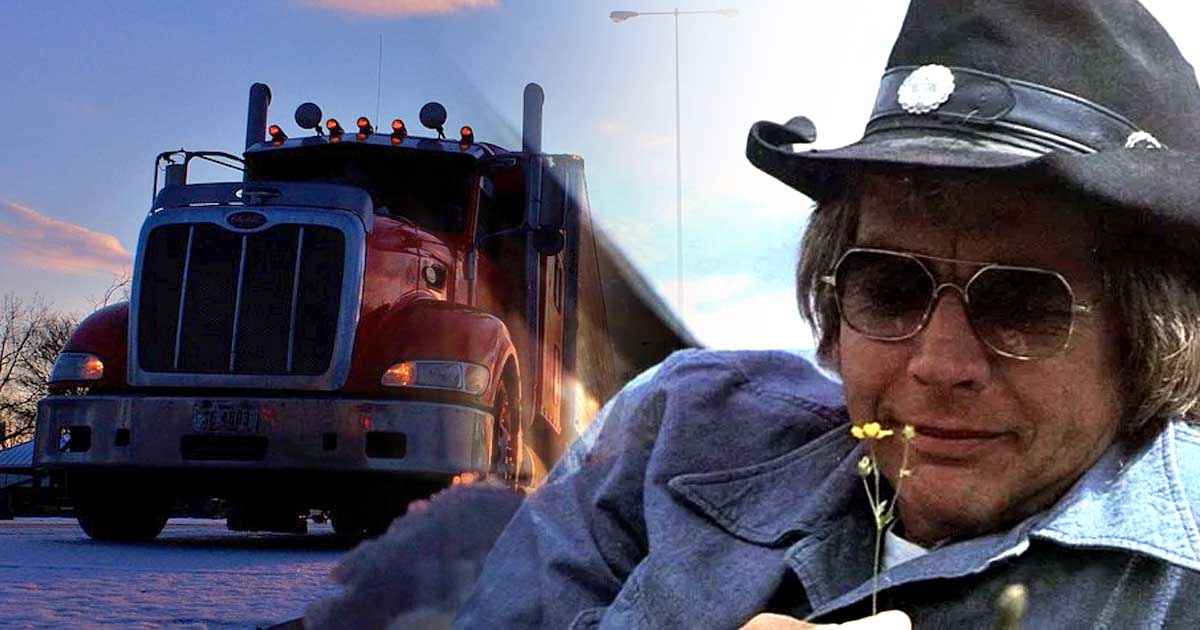
About the Song
In the annals of American music, few songs have captured the spirit of the open road and the camaraderie of the trucking community as vividly as C.W. McCall’s “Convoy.” Released in 1975, this unexpected hit transcended the boundaries of country music, resonating with a broad audience captivated by its infectious rhythm, colorful storytelling, and celebration of a unique subculture.
C.W. McCall, the stage name of William Fries, was not a full-time musician but rather an advertising executive who created the character of C.W. McCall for a series of commercials featuring the fictional “Old Home Bread” brand. The commercials, with their folksy charm and humorous narratives, proved immensely popular, leading to the creation of a C.W. McCall album, “Black Bear Road,” which included the song “Convoy.”
“Convoy” is not a traditional song with verses and choruses but rather a spoken-word narrative set to a driving, country-rock beat. The lyrics, written in the style of a truck driver’s CB radio chatter, tell the story of a group of truckers who band together to defy the authorities and drive across the country without adhering to speed limits and other regulations. The song’s protagonist, the Rubber Duck, leads the convoy, communicating with his fellow truckers using colorful slang and code words.
The song’s appeal lies in its celebration of the independent spirit and its portrayal of truckers as modern-day folk heroes. In the 1970s, a time of economic uncertainty and social upheaval, “Convoy” offered a vision of freedom and self-reliance, resonating with many Americans who felt alienated from the mainstream culture. The song’s catchy melody and memorable lyrics made it a crossover hit, reaching the top of the Billboard Hot 100 chart and solidifying its place in American pop culture.
“Convoy” also sparked controversy, with some critics accusing it of glorifying lawlessness and reckless behavior. However, the song’s enduring popularity suggests that its message of camaraderie, independence, and the open road continues to resonate with audiences today. It remains a beloved classic, a testament to the power of music to capture the spirit of a time and place, and a reminder of the enduring allure of the American highway.